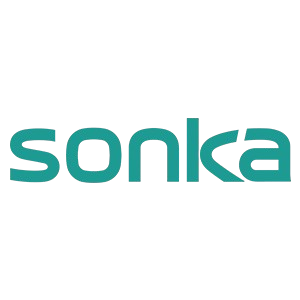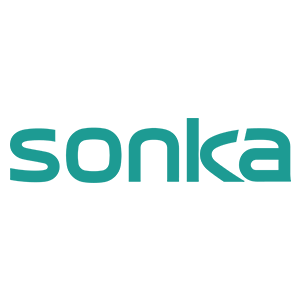Telemedicine kiosks have evolved significantly, leveraging advanced technology to provide remote healthcare services efficiently. These kiosks now incorporate cutting-edge hardware and software, enabling real-time consultations that are both convenient and practical. Recent advancements have enhanced their capabilities, allowing for seamless interaction between patients and healthcare providers even in geographically isolated areas.
AI-driven algorithms have further amplified the diagnostic abilities of these kiosks. By offering services such as body composition analysis and vital signs monitoring, these kiosks can deliver comprehensive health evaluations remotely. Such innovations make it possible for patients to receive accurate health assessments without needing to be physically present at a healthcare facility. This far-reaching capability addresses the increasing demand for prompt and precise medical services.
The integration of video conferencing tools within these kiosks is a critical advancement that broadens healthcare accessibility. Patients can now virtually meet doctors, which is particularly beneficial in remote areas where healthcare access is limited. This technology not only expands reach but also significantly reduces travel time and costs for patients, enhancing the overall healthcare experience.
Scalability is another key feature of telemedicine kiosks, allowing clinics to effectively manage patient volume while maintaining high-quality care. Clinics can implement these solutions to cater to various patient needs without overcrowding their facilities. Studies have shown that telemedicine kiosks contribute to reduced wait times and improved patient satisfaction, ultimately leading to better healthcare outcomes. As telemedicine continues to advance, these kiosks are poised to play an even more pivotal role in the future of healthcare delivery.
Interactive and user-friendly interfaces are fundamental in telemedicine kiosks, ensuring that patients of varying technological abilities can navigate the system effortlessly. These kiosks often feature touchscreen interfaces designed to guide users through each step of the healthcare process seamlessly. Such designs are crucial for accommodating diverse demographics, from the technologically savvy to those less familiar with digital interfaces.
The integration of diagnostic tools is a hallmark of advanced telemedicine kiosks, which often include vital signs monitors and height and weight scales. These tools streamline the initial assessment process by providing healthcare providers with accurate and immediate data. This integration contributes significantly to creating detailed patient histories, facilitating more informed and effective medical consultations.
Privacy and security are paramount in telemedicine, necessitating strict compliance with healthcare regulations like HIPAA. Telemedicine kiosks incorporate robust privacy measures, including end-to-end encryption, to protect personal data. These precautions ensure that patient information remains confidential, addressing one of the primary concerns associated with digital health services.
Advanced sensors and imaging technologies complement the diagnostic capabilities of telemedicine kiosks. These technologies allow real-time health data collection, assisting healthcare professionals in making swift and accurate diagnoses. By providing immediate feedback, these tools enhance the overall efficacy and reliability of remote healthcare consultations, bridging the gap between traditional in-person check-ups and digital healthcare experiences.
Telemedicine kiosks are pivotal in bridging healthcare gaps, especially in rural communities where access to medical services is limited. These kiosks provide essential healthcare services, facilitating online consultations and enabling patients to engage with healthcare providers remotely. This technology significantly reduces travel time and costs, making it an attractive solution for regions with sparse medical facilities. By extending healthcare services into these underserviced areas, telemedicine kiosks support community health initiatives and offer vital medical attention to those most in need.
In urban health systems, telemedicine kiosks are being integrated to enhance service efficiency. They serve as effective triage tools in emergency departments, helping to streamline patient management and reduce wait times. By facilitating quick assessments and initial consultations, kiosks allow medical professionals to prioritize and treat urgent cases more effectively. This not only improves the overall patient experience but also optimizes the use of hospital resources, minimizing overcrowding and enhancing healthcare delivery efficiency.
Retail pharmacies and community centers are deploying telemedicine kiosks as supplementary healthcare stations, providing additional avenues for health checks and consultations alongside traditional pharmacy services. These kiosks enable minor health assessments such as monitoring vital signs and guiding patients on medication usage. By offering health services in familiar community spaces, kiosks enhance accessibility and encourage community members to engage in proactive health management, ultimately supporting broader public health goals.
The presence of telemedicine kiosks in diverse environments contributes significantly to public health by raising awareness and facilitating easier access to preventative healthcare services. Such kiosks play an essential role in educating the public on health issues, promoting preventive care, and encouraging healthy lifestyle choices. Through increased accessibility and education, telemedicine kiosks empower individuals to take charge of their health and play a critical part in enhancing healthcare accessibility in underserved populations.
Telemedicine kiosks have made a significant impact on healthcare delivery by improving access to medical services, particularly for underserved populations. These kiosks facilitate timely medical interventions by allowing patients to consult healthcare professionals remotely, eliminating the need for long-distance travel. This is especially beneficial in areas where healthcare facilities are scarce. Additionally, the convenience of kiosks reduces barriers to accessing care, ensuring that underserved populations can receive the attention they need efficiently.
Moreover, telemedicine kiosks help in reducing healthcare costs. By decreasing the reliance on traditional clinics, they help lower overhead expenses and minimize the issue of missed appointments. When patients can access healthcare effortlessly, it results in fewer last-minute cancellations or no-shows, optimizing the healthcare system's efficiency and cost-effectiveness.
Kiosks are also pivotal in enhancing chronic disease management by enabling regular monitoring of vital signs. They allow for ongoing patient engagement with healthcare professionals, which is crucial for managing conditions like diabetes or hypertension. Patients can use kiosks for routine checks, and the data collected can be relayed to healthcare providers for ongoing management, significantly benefiting long-term health plans.
Additionally, telemedicine kiosks emphasize preventive care by encouraging regular health checks. This proactive approach enables the early detection of potential health issues, allowing interventions before conditions become severe. The emphasis on preventive measures not only improves patient outcomes but also reduces overall healthcare costs by preventing the escalation of ailments. In essence, kiosks play a crucial role in shifting the healthcare focus from treating diseases to preventing them, benefiting both individuals and healthcare systems alike.
In today's rapidly evolving healthcare landscape, telemedicine kiosks have become essential tools for providing accessible and efficient medical care. The Efficient Physical Examination Smart Health Checkup Kiosk is a top-tier product that offers a comprehensive suite of diagnostic tools, offering a complete patient evaluation experience. This innovative telemedicine solution integrates various diagnostic methods into one platform, making it ideal for quick and thorough physical assessments.
The Sonka Medical Self-Service Health Diagnostic Kiosk empowers individuals by incorporating integrated vital signs monitors. These monitors enhance independent health tracking, allowing users to conduct regular health evaluations conveniently. This kiosk facilitates continuous monitoring of essential health parameters, fostering an authoritative self-care environment.
For a broader health assessment, the Sonka Full Body Check-Up Machine Kiosk stands out with its advanced analysis capabilities that cover comprehensive physical health parameters. Utilizing sophisticated imaging technology, this kiosk provides an in-depth health overview and is ideal for hospitals needing detailed examination results.
Lastly, the Sonka All-in-One Healthcare Medical Equipment Kiosk merges various medical check processes into a single, user-friendly interface. This adds convenience by enhancing accessibility and elevating user experience, especially beneficial for hospitals and clinics targeting streamlined health service delivery.
These innovative telemedicine kiosks from Sonka Medical represent significant advancements in healthcare technology, enhancing accessibility, accuracy, and convenience to provide better patient care experiences.


Copyright © 2025 by Shenzhen Sonka Medical Technology Co., Limited - Privacy policy